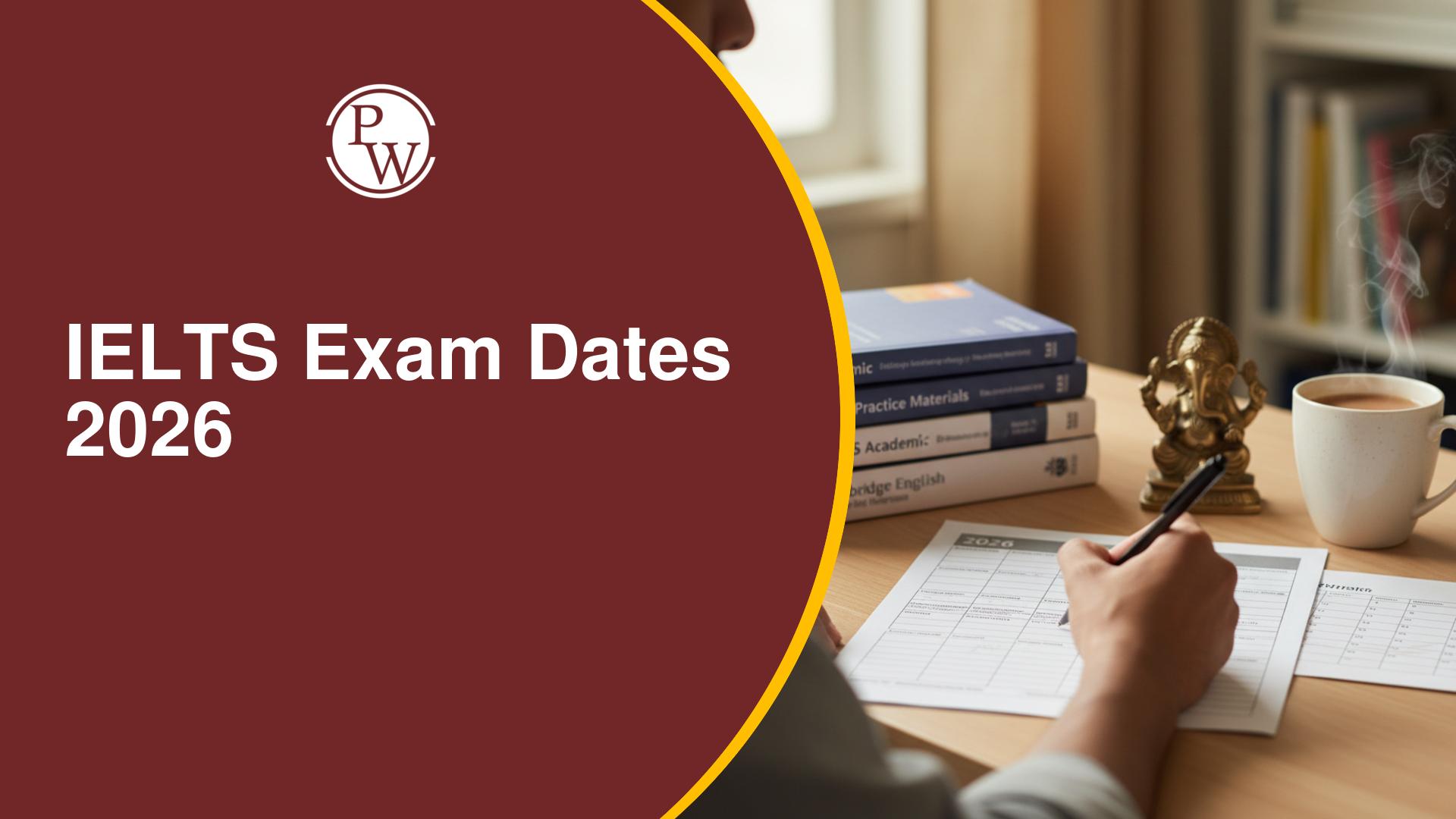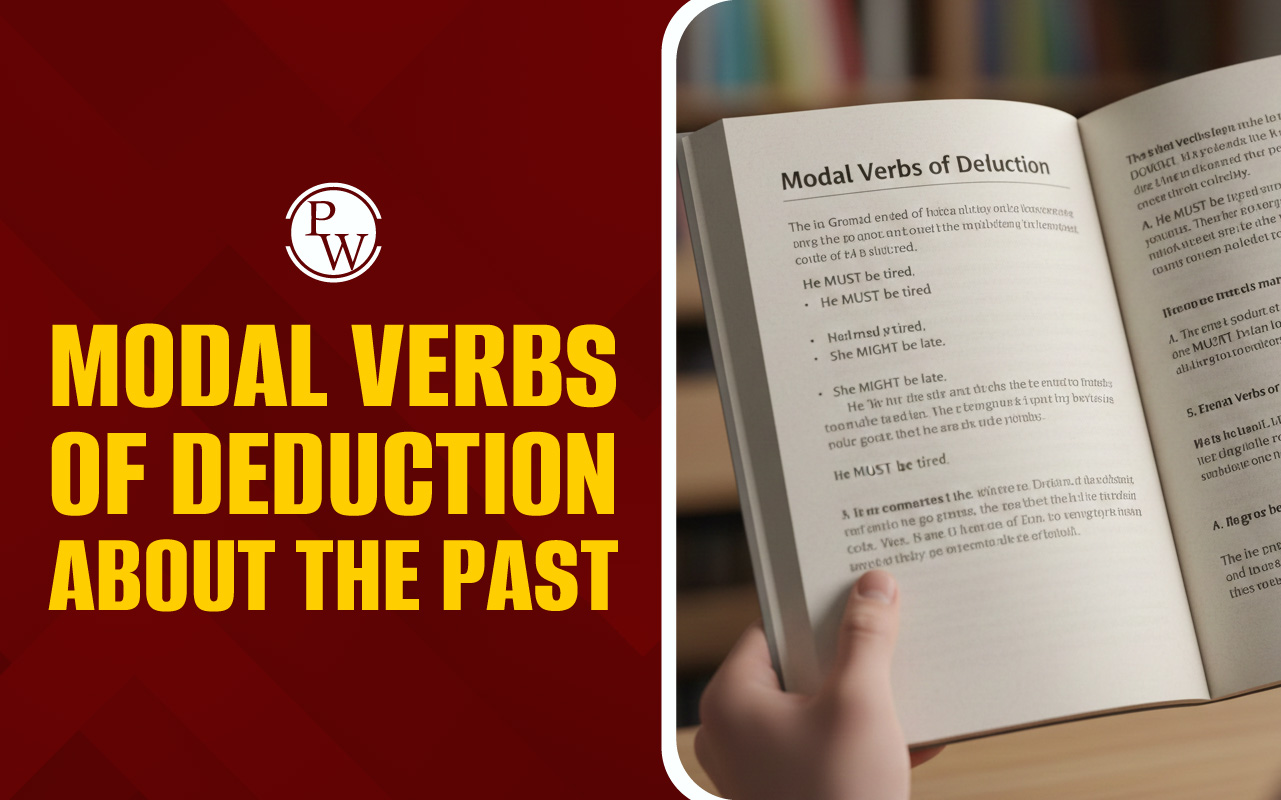
How to Interact With Your IELTS Examiner: The IELTS exam has four sections: Listening, Reading, Writing, and Speaking. In the Speaking section, you will have a conversation with an IELTS examiner who will evaluate your speaking abilities. It is important to interact properly with the examiner, as this shows how well you can communicate in English.
A respectful and positive approach can create a good start to your speaking test. The article below explains how to interact with your IELTS examiner , offering tips on making a good impression, such as greeting the examiner, maintaining eye contact, and answering confidently. Following these tips can improve your performance and showcase your English skills effectively.
Also Check:
How to Interact With Your IELTS Examiner?
Interacting well with your IELTS examiner is important for achieving a higher score in the Speaking section. How you communicate with the examiner can highlight your English skills, including your ability to speak clearly, confidently, and politely. A good interaction includes greeting the examiner warmly, maintaining eye contact, and carefully listening to questions before giving thoughtful answers.
Showing these abilities helps make a strong first impression and supports a smooth and fluent conversation. This is essential, as it shows your readiness to use English in everyday situations. Below are detailed tips on interacting with your IELTS examiner, which have helped many students achieve higher IELTS band scores .
| IELTS Exam Important Links | ||
|---|---|---|
| IELTS Syllabus | IELTS Band Score | IELTS Result |
| IELTS Exam Fees | IELTS Exam Pattern | IELTS Score Validity |
How to Greet an IELTS Examiner?
Greeting your IELTS examiner appropriately helps create a positive atmosphere for the speaking test. Here’s how to approach it:
- Initial Greeting:
- Polite and Friendly: When you enter the room, greet the examiner with a smile and say, " Good morning, afternoon, or evening. " For example, " Good morning! How are you today? "
- Introduce Yourself:
- Brief Introduction: If asked, introduce yourself briefly. For instance, "My name is [Your Name]. It's nice to meet you."
- Body Language:
- Confident Posture: Stand or sit upright, maintain eye contact, and avoid unnecessary movements. This demonstrates confidence and readiness.
- Responding to Questions:
- Attentive Listening: Pay close attention to the examiner’s questions or instructions and respond accordingly. If asked how you are, you could reply, "I'm doing well, thank you. How about you?"
- Maintain Formality:
- Professional Tone: Keep the conversation respectful and formal throughout. Avoid using slang or casual expressions.
- For example:
- Examiner: "Good morning. Please take a seat."
- You: "Good morning! Thank you. My name is [Your Name]. How are you today?"
Starting the conversation positively helps create a good first impression, giving you a strong start to your speaking test.
| IELTS Exam Important Links | |
|---|---|
| IELTS Reading Band Score | IELTS Listening Band Score |
| IELTS Speaking Band Score | IELTS Writing Band Score |
Tips to Interact With Your IELTS Examiner
Making a good first impression during your IELTS Speaking test is key to setting a positive tone for the rest of the exam. Simple actions like greeting your examiner warmly and speaking confidently can greatly improve your interaction. The following tips will help you make a strong start and engage effectively with your examiner.
- Make a Good First Impression: Greet your examiner with a warm smile and a polite greeting. Example: "Good morning! It's a pleasure to meet you." This creates a positive start to the conversation.
- Maintain Eye Contact: Keeping eye contact shows confidence and helps you connect with the examiner. Avoid looking around, as it may signal nervousness or lack of focus.
- Listen Attentively: Pay close attention to the examiner’s questions and instructions. This ensures you give relevant and accurate answers. Nodding occasionally can show that you are engaged.
- Speak Clearly and Confidently: Use a clear, steady voice. Avoid mumbling or speaking too fast. Practice speaking at a moderate pace to make your words easy to understand.
- Use Formal Language: While being friendly is good, keep your language formal and professional. Avoid using slang or overly casual phrases.
- Be Concise and Relevant: Answer questions directly and avoid straying off-topic. This shows you can stay focused and manage your time effectively.
- Showcase Your Vocabulary: Use a variety of vocabulary to demonstrate your language skills. However, ensure the words you choose fit naturally into your answers.
- Ask for Clarification if Needed: If you don’t understand a question, politely ask the examiner to repeat or clarify it. Example: "Could you please repeat the question?" This is better than guessing an answer.
- Use Gestures Appropriately: Natural hand gestures can help emphasize your points and make your speech more engaging. Avoid excessive or distracting movements.
- Practice Mock Interviews: Practicing with a friend or tutor can help you become more familiar with the test format and reduce anxiety during the exam.
By following these tips, you can interact effectively with your IELTS examiner and improve your chances of achieving a higher score. Best of luck!
Why Good Interaction With the IELTS Examiner is Important?
Effective interaction with your IELTS examiner is important, as it can directly impact your performance in the speaking test. A positive and confident approach can help you make a good impression while demonstrating your language abilities. Below are some key benefits of engaging well with your examiner:
- Showcases Communication Skills: Demonstrates your ability to speak English clearly and effectively.
- Improves Band Score: Effective communication and positive engagement can improve band scores.
- Builds Confidence: Positive interaction with the examiner reduces anxiety and boosts confidence.
- Assesses Real-Life Conversation: Reflects how well you can handle an English conversation in everyday situations.
- Influences First Impressions: A good interaction sets a positive tone for the rest of the test.
- Highlights Language Proficiency: Allows you to show a wide range of vocabulary and grammatical accuracy.
Things to Keep in Mind While Interacting with IELTS Examiner
How you interact with your examiner can greatly affect your final score. When interacting with your IELTS examiner, there are key points to keep in mind for a successful speaking test:
- Politeness and Respect: Always greet the examiner with a smile and remain polite throughout the conversation.
- Confidence: Speak clearly and confidently, showing you are comfortable using the language.
- Eye Contact: Maintain eye contact to show engagement and confidence.
- Active Listening: Pay close attention to the examiner’s questions and instructions, demonstrating attentiveness and the ability to respond appropriately.
- Clear and Concise Answers: Answer questions directly without going off-topic. Keep your responses focused and relevant.
- Use of Formal Language: Avoid slang and informal language. Use professional and appropriate vocabulary for the test.
- Body Language: Display positive body language, such as sitting upright and using natural hand gestures.
- Clarification: If you don’t understand a question, don’t hesitate to ask for clarification. It’s better than providing an inaccurate answer.
- Vocabulary and Grammar: Use a variety of vocabulary and correct grammar to show your language proficiency.
- Practice: Practice speaking with friends or tutors to boost your confidence and fluency.
Interacting well with your IELTS examiner is important for getting a high score. With the PW IELTS Preparation Course , you will receive expert advice, helpful study materials, and practice sessions to build your confidence and communication skills for the exam. Join us to succeed in your IELTS journey!
How to Interact With Your IELTS Examiner FAQs
How can I impress my IELTS Speaking examiner?
How do you greet an IELTS examiner?
Are IELTS Speaking examiners friendly?
What do IELTS examiners look for in Speaking?
Is there a dress code for IELTS?







